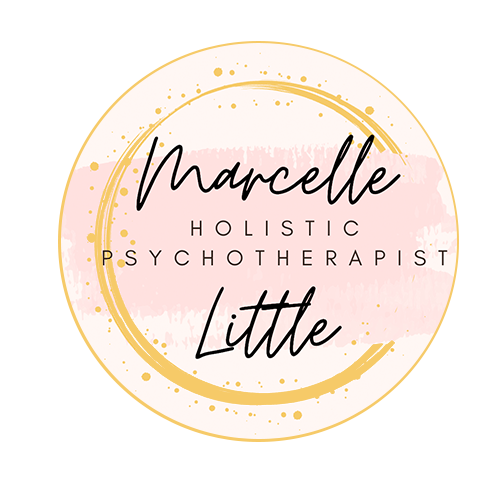7 Signs You Could Benefit from Individual Therapy
Individual therapy can be a transformative journey, offering a safe and supportive space to explore your inner world, strengthen resilience, and heal past wounds. As a psychotherapist specializing in trauma, anxiety, people-pleasing, life transitions, somatic therapy, EMDR, and women’s issues, I’ve witnessed how powerful therapy can be in helping people reclaim a sense of balance and purpose.
But how do you know if individual therapy might be right for you? Here are seven signs that suggest embracing this path could provide the support and growth you’re seeking.
1. Feeling Overwhelmed by Everyday Life
Do you often feel like you’re drowning in daily responsibilities? When the pressures of life become too much to handle, therapy can provide coping strategies and a safe place to process these feelings.
Many people experience overwhelm at different points in their lives. You might notice a constant sense of anxiety or frustration. Therapy offers practical tools—such as grounding practices, stress-reduction techniques, and somatic awareness (Levine, 2010)—to help you regain clarity and control.
2. Experiencing Persistent Stress or Anxiety
If anxiety feels like a constant companion, therapy can help. Cognitive-behavioral strategies (Beck, 2011) and mindfulness-based approaches (Kabat-Zinn, 2003) are often effective in reducing anxiety.
Therapy isn’t just about managing symptoms—it’s about restoring inner calm. For example, mindfulness or dialectical behavior therapy (DBT) skills like urge surfing (Linehan, 2014) can teach you how to ride emotional waves without feeling consumed by them.
3. Struggling with Self-Esteem Issues
Low self-esteem can keep you from living fully. Therapy provides an opportunity to explore the roots of self-criticism, often tied to family dynamics or societal pressures.
Psychodynamic and parts-work approaches (Schwartz, 1995) can help uncover limiting beliefs, while somatic therapy supports embodied confidence. As you begin to shift your inner narrative, you cultivate greater self-compassion and the freedom to pursue your goals without the weight of self-doubt.
4. Facing Major Life Changes or Transitions
Transitions—whether a career change, ending a relationship, or moving to a new city—can feel destabilizing. Therapy offers guidance to process emotions and adapt to change.
Research shows that supportive counseling during life transitions enhances resilience and helps people embrace new opportunities (Bridges, 2004). Rather than seeing change only as loss, therapy reframes it as a doorway to growth and self-discovery.
5. Dealing with Relationship Difficulties
Conflicts with partners, family, or friends can deeply impact well-being. In therapy, you can explore relational patterns, communication struggles, and boundary-setting in a private, non-judgmental space.
Attachment-based research (Bowlby, 1988; Johnson, 2019) highlights the importance of secure emotional connection. Therapy can help you recognize patterns—like people-pleasing or avoidance—that keep relationships stuck and provide tools for healthier, more fulfilling connections.
6. Experiencing a Lack of Direction or Purpose
Feeling lost or disconnected from your values can be distressing. Therapy creates space to clarify what matters most and set meaningful goals.
Existential therapy (Yalom, 1980) and mindfulness-based exploration can illuminate your values and passions. Together with your therapist, you can develop a compass for navigating choices, helping you step into a future fueled by purpose rather than uncertainty.
7. Needing a Safe Space to Process Emotions
Sometimes, the most healing aspect of therapy is simply having a space where you can be fully yourself. Therapy provides a confidential, supportive environment to express your feelings, deepen self-understanding, and foster emotional resilience.
Research consistently shows that the therapeutic relationship itself is a powerful predictor of healing (Norcross & Lambert, 2011). The act of being heard and validated can unlock new perspectives and pathways to emotional well-being.
Final Thoughts
Individual therapy is not just for crisis moments—it’s a gift of self-discovery, resilience, and empowerment. If you recognize yourself in any of these signs, therapy could offer the clarity, healing, and support you need to thrive.
References
Beck, J. S. (2011). Cognitive Behavior Therapy: Basics and Beyond. Guilford Press.
Bowlby, J. (1988). A Secure Base: Parent-Child Attachment and Healthy Human Development. Basic Books.
Bridges, W. (2004). Transitions: Making Sense of Life’s Changes. Da Capo Press.
Johnson, S. (2019). Attachment Theory in Practice: Emotionally Focused Therapy (EFT) with Individuals, Couples, and Families. Guilford Press.
Kabat-Zinn, J. (2003). Mindfulness-Based Interventions in Context: Past, Present, and Future. Clinical Psychology: Science and Practice, 10(2), 144–156.
Levine, P. (2010). In an Unspoken Voice: How the Body Releases Trauma and Restores Goodness. North Atlantic Books.
Linehan, M. M. (2014). DBT Skills Training Manual (2nd ed.). Guilford Press.
Norcross, J. C., & Lambert, M. J. (2011). Psychotherapy Relationships That Work. Oxford University Press.
Schwartz, R. (1995). Internal Family Systems Therapy. Guilford Press.
Yalom, I. D. (1980). Existential Psychotherapy. Basic Books.
I’m Marcelle Little, a California and Florida-licensed psychotherapist (LMFT #129593, TPMF1241) and UK-registered practitioner offering online therapy for adults in California, Florida, and select European countries. My work integrates EMDR, somatic therapy, parts work, and depth psychology to help individuals heal trauma, anxiety, and intergenerational wounds.

